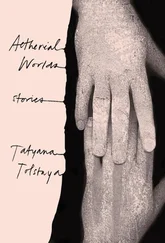“Only the dining room and lounges can be viewed, and the bedrooms at night. The showers and toilets may not be viewed, by law. The passengers have a right to privacy,” she explained.
“But the maintenance men can always take a peek.”
“You’re mistaken.” Her lips tightened. “In the showers and stalls there are no cameras, because of rust.”
“Good. Rust rises in my estimation.”
She ignored his remark.
“Over here, Dave,” she said. “This second one in the third row.” She jutted her chin at one of the monitors. “The whites from transport 077-12 are eating lunch right now. With these two levers you can move the camera. Identification numbers are on the front of their shirts. If you find your wife, read out the number, and I’ll call her to the microphone. You’ll be able to get a good look, and if you identify her and she confirms your identity, you have the right to examine her naked. Immigration law allows that. Personally I would advise it, because on the prison ship she will have aged and changed—and then you can back out. No conversation, by the way, is permitted.”
Gavein turned the levers, watching the monitor. Soon he was able to pan slowly across the sad faces of women, their hair tied in kerchiefs as gray as their shirts. Though the grayness might have been a result of the poor camera image, which was almost completely devoid of color. The numbers were on large white patches sewn to the shirts. He couldn’t see the women who sat at the edge of the camera’s range, even at maximum close-up. Some glanced up, taking note of the camera’s movement. They began to speak with animation, and soon most of the women were staring at the lens. A few smiled, but generally the looks were hostile, angry. Two women raised a fist.
“If you don’t find her this way, I’ll order them to walk single file down a corridor. Then they’ll have to walk right past a camera. You want to be sure she’s dead.”
Exactly at that moment, he recognized his wife. She was sitting in profile, bent over. She never sat like that before. She was eating from a bowl with a spoon. She wore glasses, poorly made, of crooked wire. She never wore glasses before. For a moment he fought the lump in his throat. She was alive. He wanted to leap with joy.
“That’s her. She’s sitting over there,” he said at last.
The official started.
“Her number is 077-12-747,” Gavein said. “You can call her. Anabel?” He saw the gesture she made. He couldn’t show what he felt. There was no telling what else they would think up. This was a battle; there would be time to celebrate later.
“Very well.” She gave him a look and said crisply into the microphone, “077-12-747, go to the interrogation room.”
Ra Mahleiné pushed away her bowl and stood up, agitated. Gavein fought to keep his tears from welling. He once believed he was incapable of crying. As she walked, he could see her better. She hadn’t changed so very much, though she looked pitiful, as if after a long illness. She had a stoop. It wasn’t the stoop of young women who are too tall and try to lessen their height by bending—naively, since in profile they resemble birds that stalk, remaining too tall. Ra Mahleiné was bent forward at the waist, like a woman beginning to suffer from osteoporosis. Before, she had had a slight defect in posture; now it was obvious.
“Her name?” asked Anabel.
He was angry that she was making him repeat it. He had no doubt that she remembered that name.
Ra Mahleiné was at another monitor now. She looked calmly into the camera, standing at attention in the way required.
“State your identity,” Anabel snapped into the microphone.
“Number 077-12-747,” answered Ra Mahleiné in a hoarse voice.
“I want your first and last names.”
“You beat those out of me over the years. I’m not giving you an excuse.” The way she spoke was different, defiant. The sweetness was gone.
“Give your first and last names from Lavath. That is an order,” said Anabel.
“Ra Mahleiné Throzz.”
“May I say something to her?”
“That’s not possible,” said Anabel. “For two reasons. On the ship there was an epidemic of mental illness—she might not be able to endure hearing you. And the law forbids it.”
Gavein sensed that on this point the supervisor would not bend.
“Someone called Dave is inquiring about you. Do you know him?”
“I don’t know any Dave. I will not undress in front of the camera for a stranger just because he has taken notice of me. I think my husband hasn’t forgotten me in two weeks. He will come, to…” She broke off.
Gavein’s soul sang.
“Anabel, she knows me under a different name.”
“Don’t interrupt. This is the procedure. Now I’ll confirm your relationship.” Anabel had become the perfect official.
“He knows your name,” she told Ra Mahleiné.
“I don’t know where he learned it,” Ra Mahleiné said with a shrug. “It was no secret. You could have told him yourself. You tried to make me believe, before, that Gavein had sold me…”
Gavein started. The goodwill of Anabel, her concern, her helpfulness—it had all been a game, to break him. From the first, she had known the one he was seeking.
“Behave yourself,” barked Anabel, no longer resembling a woman who loved to bake rolls. “He came to take you from this place. And you will undress if I order you to undress!”
Ra Mahleiné’s reply was to lift a clenched fist to the camera and kiss it.
“I’ll call the guards,” Anabel threatened.
“You exceed your power, and the tape from this camera will be evidence against you,” Ra Mahleiné said.
He didn’t recognize his wife, so fierce and determined. This exchange was apparently the continuation of a duel that had been going on for a long time.
“This man from Lavath calls himself Gavein Throzz. You know such a man?”
“That was my husband’s name. But I don’t believe you, that he’s standing there. You tried to trick me before and didn’t succeed. Give it up…”
But Ra Mahleiné didn’t seem as sure of herself as she had been.
“I don’t want her undressing here. It’s humiliating. Stop this, Anabel. There’s no doubt in my mind that it’s her.”
“No, no,” Anabel sputtered. “You have to sign the affidavit, so that in the event of an error you cannot make a claim against us and search more. If you sign, you must accept her. But if she undresses, you can change your mind and look for another.”
Why was she insisting on this? What reaction from Ra Mahleiné was she hoping for?
“I’ll sign the affidavit.”
“All right. I’ll terminate her quarantine in two weeks. We’ll deliver her then to your house.”
“She can’t go with me now?”
“Impossible. Health reasons. She might be carrying a disease.” Anabel shook her head, then barked into the microphone, “077-12-747, you will move to the preparation room, starting today.”
“Gavein,” called Ra Mahleiné. “Do you see me? Don’t look at me now.” She covered her face with her hands and could not speak.
“077-12-747, leave the interrogation room immediately. The matter has been settled. You have been recognized, and Mr. Throzz accepts you. Go.”
“Yes, good… Gavein,” Ra Mahleiné said, wiping her glasses with an edge of her shirt. “My glasses… My eyes went bad, Gavein…”
Anabel, furious, switched off the monitor.
“So it turned out the way you wanted,” she said to Gavein. “But what will you do with her? She can’t be your wife, you know. Whites aren’t written into passports.”
“She was written into mine. They made an exception for me.”
“That was only a note guaranteeing her personal safety, nothing more. In addition to her, you can have a normal wife.”
Читать дальше












